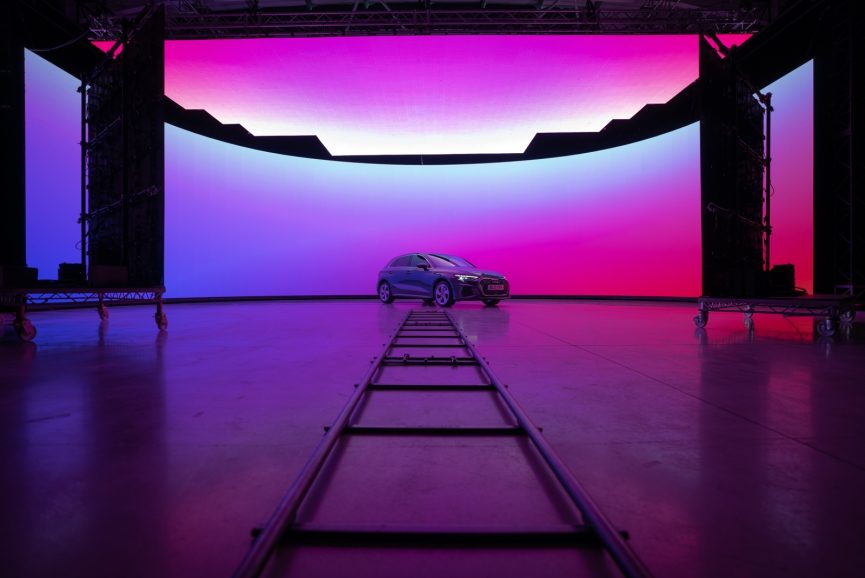TRUE BRIT
As UK studios adapt to industry changes, they are expanding, embracing sustainability, and enhancing training initiatives, paving the way for a vibrant future in film.
The uncertainty around film and HETV production may not have yet subsided, but studios—the foundation of the UK film industry in more ways than one—continue to operate. Expansion seems to have restarted, and in addition to shooting space, many studios are investing in ancillary services and providing spaces for training, looking to the industry’s future.
South by Southeast
Just opened near Reading, Shinfield Studios is the largest new film and television studio in the UK. Joint managing director Nick Smith states, “Our one million ft², state-of-the-art facility has 18 soundstages, including two of the biggest in this country at 43,000 ft², both of which have plenty of power, heating, extraction and full air conditioning.”
“The site also boasts 38 workshops, a nine-acre backlot and very comfortable and modern office spaces. We can help productions operate as energy efficiently as possible because we have incorporated sustainability into the heart of the design,” continues Smith. “We are an electric-only studio and use air source heat pumps and solar panels, and our stages are thermally controlled, which means reduced use of heating and air conditioning.
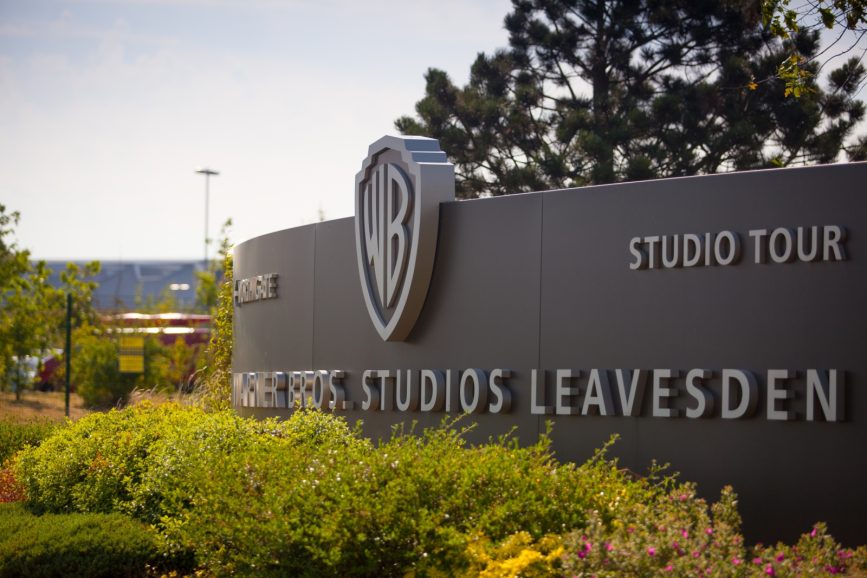
“There’s no doubt that this year got off to a slower start than we all would have liked, but there was a clear uptick in momentum from the summer onwards,” notes Smith. “As we head into winter and 2025, there’s optimism across the industry, and we’re seeing that translate into more and more productions taking space at Shinfield Studios.”
Warner Bros. Studios Leavesden (WBSL) has started the build of 11 new sound stages and an additional 400,000 square feet of production and support space. The expansion will boost the overall production space from 1.14m ft² to 1.78 million ft².
According to Emily Stillman, SVP of WBSL, the studios have “started to get a lot busier,” with recent films and television shows shot on the soundstages including Barbie, Wonka, two seasons of HBO’s hit series House of the Dragon, Beetlejuice Beetlejuice, Steve McQueen’s Blitz, the soon-to-be-released comedy series The Franchise created by Armando Iannucci, Sam Mendes, and Jon Brown, A Quiet Place: Day One from Paramount Pictures, and Marvel Comics’ Venom: The Last Dance.
Aside from the expansion, WBSL has also invested in CrewHQ, a brand-new purpose-built production training centre. “CrewHQ offers a dynamic training environment which allows us to react quickly to industry demand,” says Stillman. “It is designed to proactively focus on diversity and enhance inclusion within our industry at all levels using the wealth of industry expertise on site. Crucially, we can also use our resources and assets to support new entrants to the industry and ensure we break down barriers to open career pathways for a more diverse workforce, as well as supporting our existing crew and encouraging upskilling and progression where appropriate. It creates career pathways into the industry and supports existing crew and leadership skills at the top.”
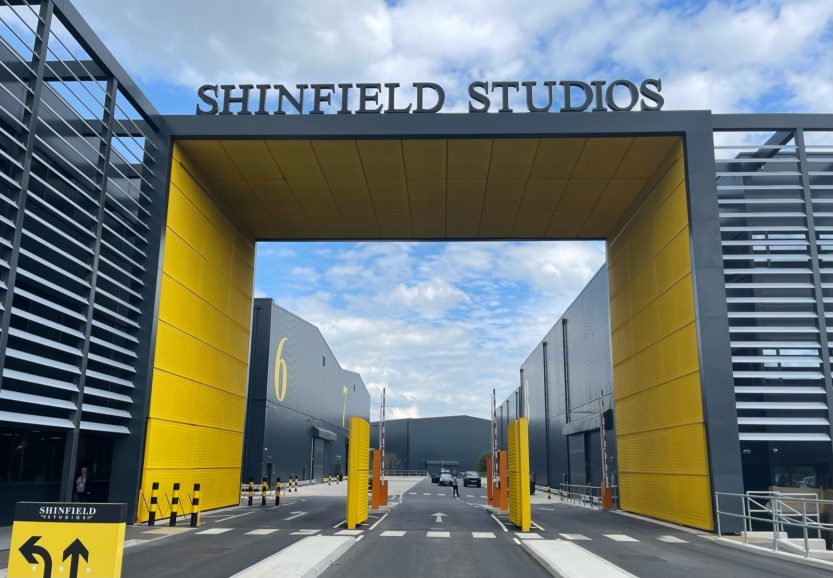
Pinewood Group’s expansion to Shepperton Studios in Surrey opened in March, with Amazon MGM Studios and Netflix as tenants. The development provides an additional 17 sound stages, 548,000 ft² of production and workshop spaces, as well as two backlots. Netflix took up eight stages in addition to an existing 14 leased stages on the original Shepperton site, while Amazon MGM Studios has taken a total of nine new stages. The development made Shepperton Studios the second largest film studio in the world, with a total of 31 purpose-built sound stages alongside ancillary production accommodation, with the site covering a total of 1.5 million ft².
“Garden Studios has seen business vacillate over the past several months,” says Debbie Adler, head of commercial & marketing. “Spring was quiet, although enquiries were coming in for the autumn. The advertising industry always picks up in the summer as brands shoot for Christmas campaigns, and new enquiries have started to come through for 2025-2026. We are cautiously optimistic about the industry picking back up to ‘normal’ levels by the end of 2024.”
After 10 years at Sky Studios, Bee Devine has joined Garden Studios as COO, bringing a depth and breadth of experience to the business. The company also started conversion on its Orchid building, a former food manufacturing facility. “The 39,000 ft² warehouse was previously used as a shooting space. We are now dividing it into three sound stages and one prep space. The new stages will be 15,026 ft², 12,863 ft², and 7,187 ft²,” says Adler.
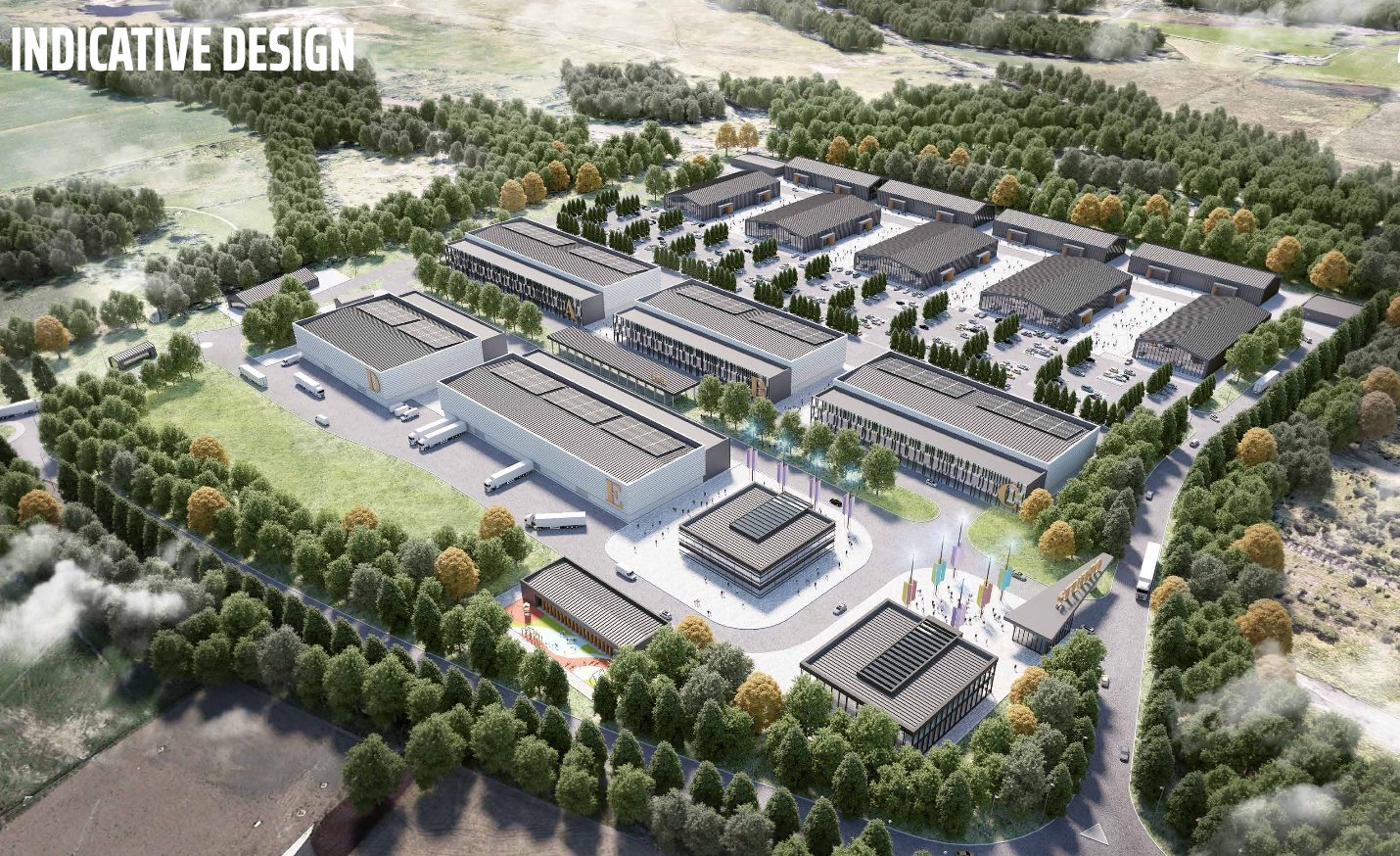
“Next door to Orchid is the former Panalux building. We are currently occupying this building and hiring it out as warehouse space for construction, props, and costume, as well as production offices and unit base parking. We have another building on our street in discussion and hope to convert that space into our eighth sound stage.”
London’s RD Studios opened in 2022 with over 45,000 ft² of studio space and a 36,000 ft² yard. It has five sound stages, each with its own hair and makeup facilities and green rooms. With an eye on sustainability, RD has its own fully automated truss, meaning rigging work can take place at ground level, saving time and money. It has recently launched RD Rentals.
“This is an on-site rental company to support our clients on site as well as producers everywhere,” says Stephanie Hartog, MD of RD Studios. “RD Rentals specialises in camera, lenses, and distro with lighting on board too. We are also very focused on developing our staff and helping them move through the business—training and moving them forward as well as supporting their goals.”
“We are lucky to be busy with a wide range of work, from producer/director Stéphane Alexandre to supermarket Christmas campaigns, from rehearsal spaces for stars such as Sam Smith and The Bleachers, to our first full Indie feature, Love, Lanre from Kayodeville productions,” continues Hartog. “We’re doing TV and commercial work too; it’s a mixed ecology that works well for us. It feels a lot busier generally, and I’m super hopeful that means that people who were considering leaving the industry don’t have to and get to live their dreams.”
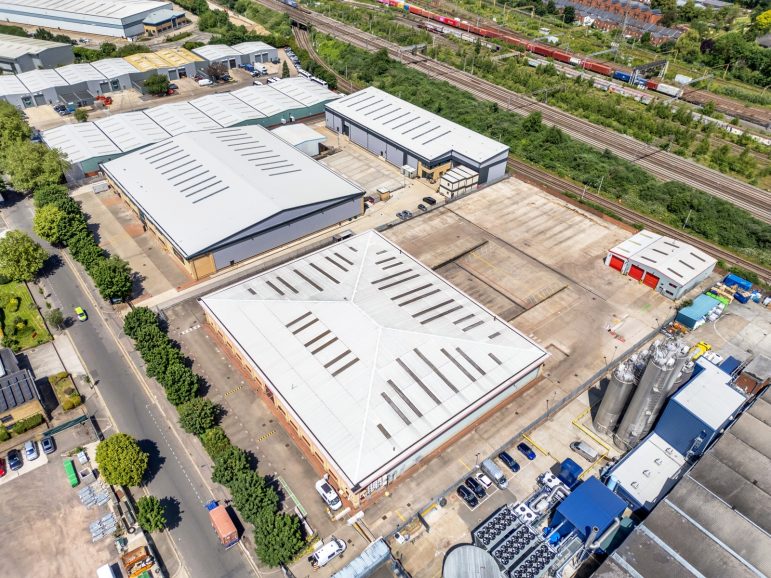
Lowlands and outlands
Set to break ground later this year, Edinburgh Caledonia Film Studios (Edincal) will include 10 large sound stages totalling 173,734 ft², ranging from 1,000m² to 3,000m², with heights of approximately 17m to 20m. “These sound stages are specifically designed to accommodate big-budget film and HETV productions, incorporating international industry-standard features such as high roof clearance, ample power supply, and flexible rigging options.”
According to development director Jim O’Donnell, the design of the studio campus, at the site of a former steelworks in Gartcosh near Glasgow, prioritises environmental considerations, practicality, and safety, such as fire-resistant structures, integrated workshops, and facilities. It will include a media hub and fibre connectivity, a training school, post-production offices, a backlot, onsite parking and associated infrastructure, as well as substantial green space.
“The studio will be designed to be zero carbon from day one, with solar and battery storage systems in place,” said O’Donnell, who also emphasises the connectivity and security offered by the campus location, as well as the potential to split the studio into four separate production spaces.
Other studios are already established close by. “Located in Cumbernauld, between Glasgow and Edinburgh, Wardpark Film and Television Studios is Scotland’s largest film and television studio,” says Joanna Dewar Gibb, manager, studio ops & client services, Scotland for The MBS Group. “Over the past few years, the stages have been home to a long-running HETV episodic production, with service and support from a local crew and facilities. Similarly, the nearby Pyramids Studios has also had a steady run of shows. With over 100,000 ft² of filming space, the stages can accommodate production on a grand scale and remain a popular choice for filmmakers, particularly when seeking a studio base close to the expansive, diverse selection of nearby locations.”
As has been the case elsewhere, local production has felt the impact of recent events.
“However, the industry in Scotland remains robust and continues to prove itself to be an attractive destination for international content creators,” says Dewar Gibb. “The introduction of additional facilities to the area, including the increased availability of lighting and other essential equipment, has helped bolster Scotland’s solid reputation as a world-class shooting ground, equally capable of hosting major international and domestic production, ably supported by skilled local crew and services.”
Further East, FirstStage Studios offers 115,000 ft² of shooting space, extensive offices, workshops, hard standing, and on-site parking. It opened in 2020 on the site of a former power plant in Leith and has enjoyed a strong relationship with Amazon Studios in particular.
In Wales, US studio firm Great Point is set to expand Seren Studios near Cardiff after acquiring the site in 2023 from the Welsh government. Formerly run by Pinewood, the facility offers 200,000 ft² of stages and support spaces. The four existing stages offer over 72,000 ft² of shooting space, while another four stages under development will add another 80,000 ft² by late 2025. The expansion, it is claimed, will make it the largest filmmaking studio in Wales.
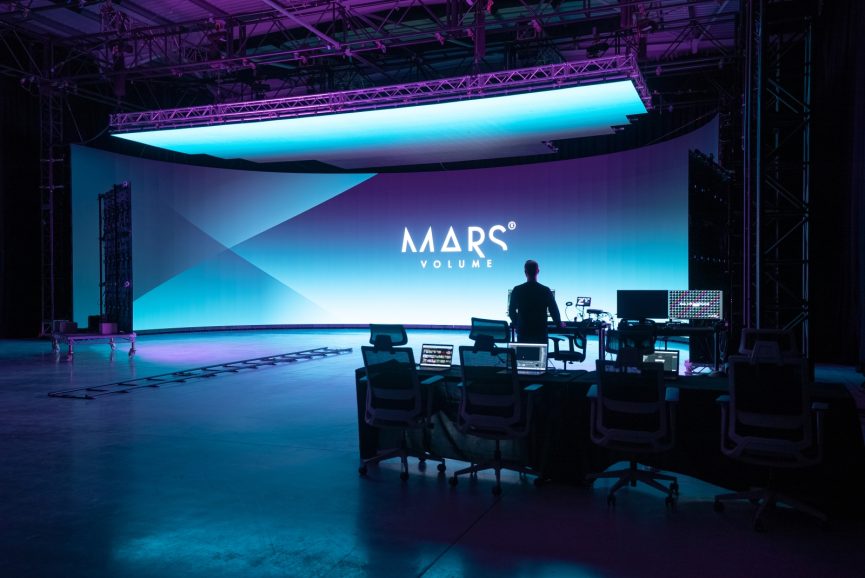
Virtual moves
In Northern Ireland, Titanic Studios and Loop Studios are being joined in the Belfast area by Studio Ulster, a large-scale virtual production (VP) studio complex due to open later this year. Developed in collaboration with Belfast Harbour and supported by Northern Ireland Screen, Studio Ulster will house two large-scale VP stages, an ICVFX stage, a motion capture stage, a 3D scanning stage for full body, facial, and object scanning, and an R&D smart stage with VP technologies to support research. With a reported VP shooting space of 75,000 ft², the complex will also feature post-production suites and a screening room and is adjacent to 67,000 ft² of workshop space and 107,000 ft² of additional sound stage space.
In London, MARS Volume LED stage run by Bild Studios is innovating the VP space. “Our virtual production specialist team and technology are world-class,” says Joanna Alpe, CCO at MARS Volume and head of academic strategy at MARS Academy. “Within our 12,000 ft² facility, we have a 25.5 x 5m LED stage, with a fully capped ceiling and wild walls. A separate multi-purpose production space provides space for the art department, catering, wardrobe, hair and makeup, and any other departments that the production needs to house.
“It’s very rewarding to see repeat bookings and multiple blocks booked at the studio. This, for me, is the proof point that we are doing something right. It’s also telling that virtual production is here to stay, that all the major studios have had productions come through MARS Volume, with plans to grow the number of virtual production scenes they undertake as part of their production scheduling mix. Notable productions include Douglas is Cancelled by ITV, 2073 by Asif Kapadia (Amy, Senna), 3 Body Problem for Netflix, Disney’s Culprits, Sweetpea on Sky Atlantic, and more.
“Heading into 2025, we will be launching a campaign around our MARS On Set Services, which we have offered on an ad hoc basis in the past,” says Alpe. “Increasingly, we see that productions are asking for bespoke approaches to virtual production LED stages on their own sets—so we want to be responsive to these developing client needs.”
